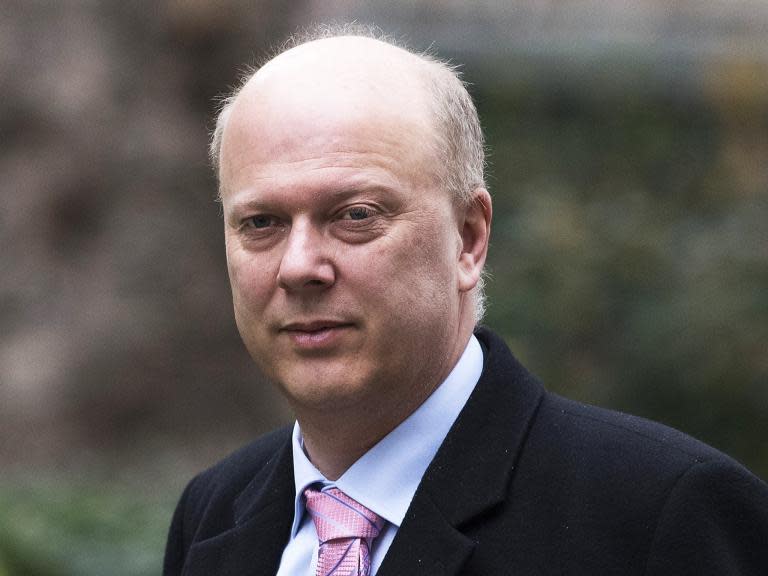Brexit speech: Chris Grayling signals UK could continue paying money to EU to settle 'long term' costs
The UK could end up paying into EU coffers for "long term obligations" in order to secure a Brexit deal, a cabinet minister has indicated.
Chris Grayling did not rule out the possibility of continuing to pay to settle the costs of long term liabilities such as the pensions of EU officials working in Brussels.
It comes after Theresa May managed to seal a cabinet truce ahead of her speech in Florence today, which erupted with Boris Johnson demanding that the UK not make long term cash contributions to the EU.
In Italy the Prime Minister will promise to settle the UK’s financial obligations, in the hope that it will persuade EU leaders to agree to start talking about trade.
But while her officials have said the UK will ensure no hole opens in the EU budget up to 2020 – meaning a pay-out of some £20bn – Mr Grayling’s words leave the door open for a further reaching commitment.
Transport Secretary Mr Grayling was asked on BBC Radio 4's Today programme, if there would be “contributions in the future, for example to meet long term obligations that the UK has for the pensions of EU officials”.
He responded: “We’ve been very open all the way through in saying we are a nation that meets its obligations, that’s going to be the case, it is the case there’s never been any doubt about that.”
Sources indicate Ms May’s speech will point to a transition period of two years, during which the UK would be willing to pay into EU coffers.
Although it is not thought she will state an actual figure, it has been reported she is willing to pay between £20bn and £30bn into as the starting price of Britain’s withdrawal.
Ms May will try and find a new form of words to convince EU leaders the UK will meet its financial obligations, with UK officials having already briefed European capitals that Britain will ensure no hole in the EU budgets to 2020 and that no member state will receive less money, or pay more to Brussels, because of Brexit.
Relations between Ms May and Mr Johnson have been strained since the Foreign Secretary wrote a 4,000-word article in The Telegraph setting out his vision for Brexit, despite Ms May having already announced that she was to give a key speech on the EU.
Reports that he would quit if Ms May committed the UK to permanently paying for access to the EU’s single market were denied, but caused enough concern for the two to hold talks in the US ahead of the cabinet meeting.
More broadly Mr Grayling said Ms May would set out the “principles” of a future relationship with the bloc in the speech, but said the detail on immigration arrangements for EU citizens during a transition period would be worked out in negotiations.
He went on: “But it's in all of our interests that we migrate to our life outside the European Union in the best possible way for Britain and actually in the best possible way for our friends and neighbours across the Channel, that's the responsible thing to do.”

 Yahoo News
Yahoo News 

